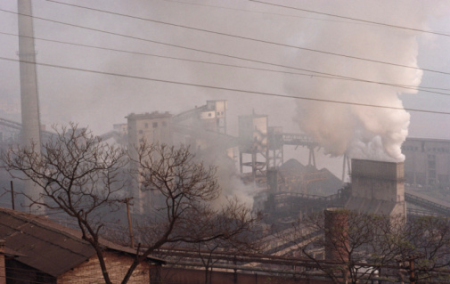Our Beijing-based Climate Change & Air Quality Program team share what they are reading and talking about

- A new Greenpeace East Asia report finds that more than a year since China initiated the Air Pollution Action Plan, there are still widespread problems with enforcing the cap on emissions. According to the report, up to 85% of heavy industry in Jiangsu and Hebei, two of China’s most polluted provinces, are illegally exceeding the emissions caps set out in the Action Plan. Of the 183 key state-monitored coal, iron, steel and cement factories in Hebei surveyed, only two met their emissions standards.
- Jiangsu will be the first province to be linked to the national emissions trading system (ETS) when it launches next year. This is how it will work: the Jiangsu Economic and Information Technology Commission will set energy standards and make energy savings certifications available for the iron and steel, non-ferrous metals, building materials, petrochemicals and chemical sectors. Companies can earn certificates by improving efficiency or by shutting down outdated capacity, and can then sell those certificates to companies that want to build new facilities or expand existing ones. The Paulson Institute and the Environmental Defense Fund (EDF) will release a white paper in June on emissions trading systems. The paper will emphasize the importance of offsets in emissions trading markets, as well as the need for transparent rules around allowance trading in order to ensure the integrity of carbon caps.
- “Climate change is a lever which can push our country’s economic transformation,” China’s top meteorologist, Zheng Guoguang, told the state newspaper, Study Times. According to a report in the Guardian, he said that climate change threatens some of the country’s most important infrastructure projects and that recent weather disasters such as floods, typhoons, droughts and heat waves had a “big connection” to climate change. The Paulson Institute believes that climate change and air pollution, both urgent issues for China, can be solved together, while transforming the economy and without losing ground on GDP growth.
- A policy document issued by the National Energy Administration said that Beijing’s Yanqing County would receive energy for heating from renewables in the future. The announcement said that Yanqing would be a pilot site for the larger effort to make a regional energy transition in Jing-Jin-Ji and alleviate air pollution. A large portion of the energy for this pilot will come from nearby Zhangjiakou, which is abundant in wind energy. (Chinese)


